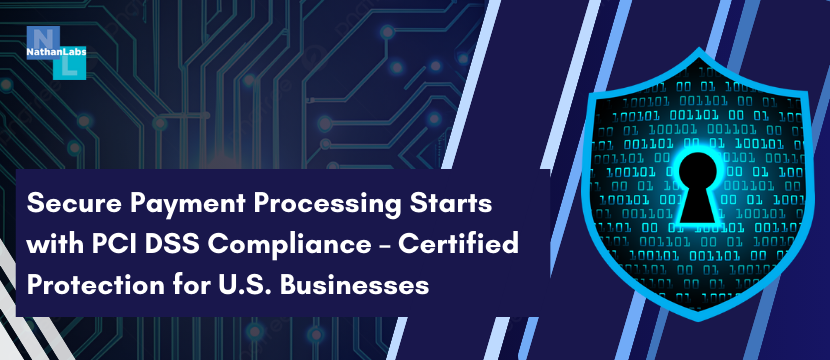PCI DSS stands for Payment Card Industry Data Security Standard. As an organizational standard created through initiatives by the Payment Card Industry Security Standards Council (PCI SSC), PCI DSS establishes security requirements for ensuring protected transactions of cardholder information. The PCI DSS compliance standard requires service from every USA business that operates on credit card information regardless of scale or market sector.
The PCI DSS security standard presents its requirements through 12 security rules which fall under six key categories. These core areas define six sections which work together for compliance:
- Organizations need to establish and support a safe network structure by implementing firewalls together with routers and other protective security measures for safeguarding cardholder data.
- Companies must secure cardholder information by using encryption procedures when storing it in addition to masking it and keeping it in protected locations to block unauthorized system access.
- An active vulnerability management program consists of scheduling regular vulnerability tests with necessary antivirus software implementation to protect systems.
- The implementation of Access Control platforms grants permission for authorized workers to access cardholder data.
- The security system needs continuous active monitoring alongside vulnerability detection tests to protect critical data.
- Developing information security policies through implementation and the actual policy formation procedure remains a fundamental requirement.
Why PCI DSS Compliance Certification Is Critical for USA Businesses?
Businesses operating in the USA need PCI DSS compliance certification to fulfill their regulatory duties for cardholder data protection alongside achieving better security measures and maintaining customer loyalty and shielding themselves from possible financial or legal issues. A business needs PCI DSS compliance for these important reasons:
1. Protecting Sensitive Customer Data
PCI DSS compliance serves as the primary business objective to defend confidential cardholder information which includes payment numbers and transactions as well as personal consumer data. The exposure of sensitive data because of inadequate protection could result in disturbing breaches which would endanger your organization against instant attacks. PCI DSS provides companies with specific requirements for encryption and tokenization as well as multiple other security systems which shield payment data throughout every step of the transaction process.
2. Avoiding Financial Penalties
The non-compliance of PCI DSS leads businesses to experience major financial consequences when data breaches occur. Organizations that fail to maintain PCI DSS compliance must bear the costs of customer notification and credit monitoring service provision as well as pay possible fees imposed by payment processors and financial institutions. Breach instances stemming from non-compliance will put businesses at risk of receiving legal action and subsequent lawsuit expenses. PCI DSS compliance serves to minimize potential risks because businesses can demonstrate their establishment of fundamental security systems that stop breaches from developing.
3. Building Customer Trust
Web transactions function optimally because customers need to trust online systems. Consumer worry about the protection of their private data and monetary details continues to grow. The process of getting PCI DSS certification in USA proves that a company prioritizes data security through standard industry protection measures for customer information. The establishment of PCI DSS compliance in USA helps generate trust among customers which strengthens customer relationships and boosts sales performance and maintains loyalty.
4. Reducing the Risk of Cybersecurity Attacks
The non-compliance with PCI DSS standards makes businesses more vulnerable to rising cybersecurity threats particularly data breaches phishing attacks and ransomware incidents. PCI DSS compliance mandates businesses to build strong security systems that combine network monitoring with encryption and robust access controls to fulfill the requirements. The implemented measures significantly lower the risk that payment and business data will be impacted during an attack.
Steps to Achieve PCI DSS Compliance Certification
PCI DSS compliance certification in the USA requires business-dependent processes for certification purposes that extend across various business attributes. Every business needs to follow a standard process for PCI DSS compliance achievement.
1. Assess Your Current Security Posture
You need to check the current status of your payment processing environment during your first step toward PCI DSS compliance attainment. Your first step to PCI DSS compliance requires you to spot all locations for cardholder data storage processing and transmission inside your systems. Risk assessment helps discover security weak points so the organization can fix them before starting its compliance process.
2. Implement Security Controls
After finding security gaps you must establish new security controls which fulfill PCI DSS standards. PCI DSS compliance requires firewalls for configuration and encryption software installation coupled with authorized personnel restrictions to safe card data. In order to protect your systems effectively you must periodically run vulnerability scans and perform penetration tests.
3. Complete the Self-Assessment or Hire an Auditor
The scope of your business operations and payment activity determines if you must fill a self-assessment questionnaire (SAQ) or hire a Qualified Security Assessor (QSA) to perform an official audit. Smaller businesses fulfilling the SAQ process handle payment card security self-assessments yet major enterprises need QSA conducted audits to affirm PCI DSS standard compliance.
4. Submit Your Compliance Report
Every business needs to send its compliance report to payment processors and acquirers and applicable other parties following the completion of self-assessment audits or financial examinations. The compliance report demonstrates that your organization satisfies its essential PCI DSS requirements thus qualifying it for certification.
5. Ongoing Monitoring and Maintenance
Having PCI DSS compliance remains a continuous process for businesses. Businesses need to track their systems for new security risks alongside keeping their standards compliant. To retain certification status companies need to perform monthly audits and security evaluations which help stop possible security breaches.
Benefits of PCI DSS Compliance for USA Businesses
The process of achieving PCI DSS certification provides benefits to businesses above basic regulatory compliance:
- Organizations which follow PCI DSS standards become qualified to minimize their legal responsibility when data breaches happen because they demonstrate proper protective measures for cardholder information.
- Organizations achieve a better security composition through compliance because it allows them to establish strong security systems which makes their systems less weak and builds superior cybersecurity.
- PCI DSS compliance creates various business growth opportunities because it enables enterprises to partner with clients who need strong data security protocols.
- Your PCI DSS certification demonstrates security commitment thus enabling you to stand out from competitors and obtain additional customers.

